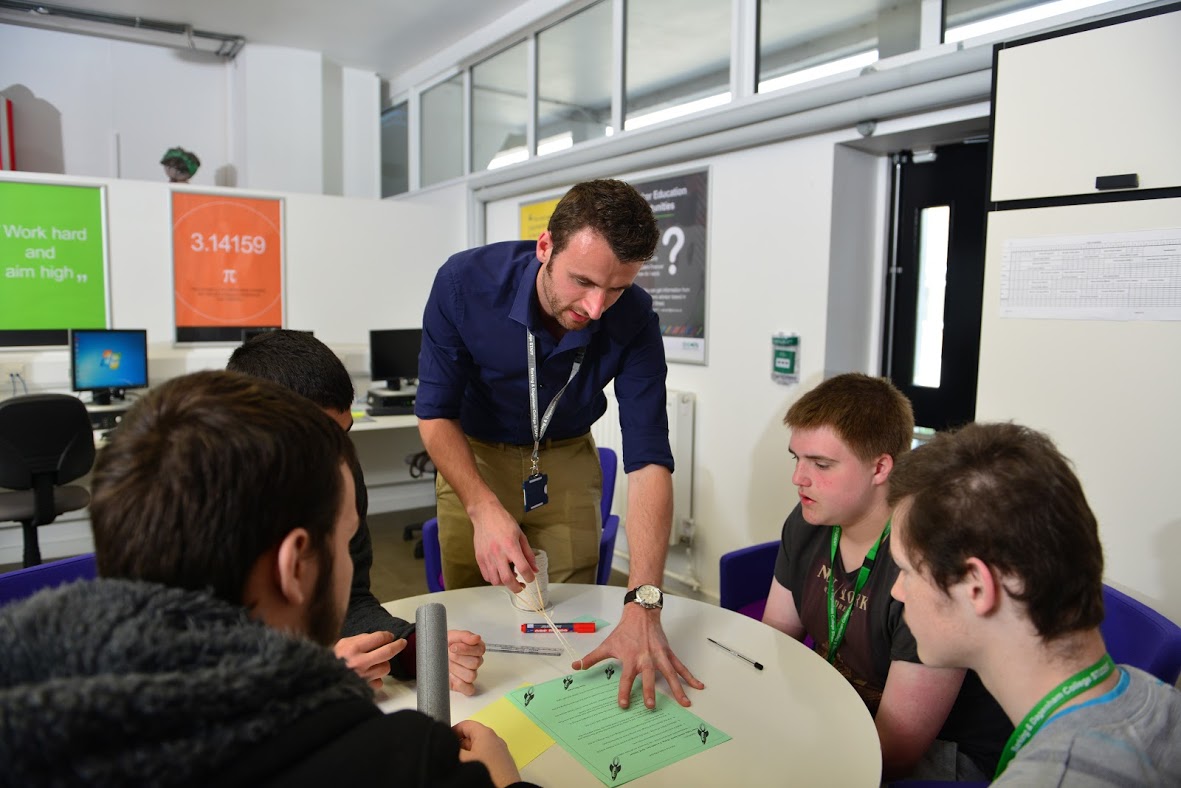Introduction of video observation and joint reflection for teachers improving their practice
As part of the Advanced Teacher Status (ATS) programme, participants are required to undertake a Quality Improvement Project.
SET’s Professional Status team reviewed all 60+ Quality Improvement Projects submitted as part of the October 2020 ATS cohort, shortlisting the top 12 using a scoring matrix, including the below from Jacqui Scott, Head of Teaching and Learning Standards at Riverside College.
This editorial provides an overview of Jacqui’s improvement project, which focused on introducing the use of video observation and joint reflective discussion to the Teaching and Learning Mentor (TLM) support process.

Research context
Riverside College was graded as Outstanding under the EIF in March 2020. Many of the teachers working at the college are outstanding practitioners. Some teachers are identified as requiring support to improve their practice. This research project sought to develop the TLM support process to help those teachers feel more confident in taking responsibility for their own development and to evidence more sustained improvement.
Aims and objectives
- To evaluate the impact of video observation as a means of raising teacher self-awareness and sustained improvement.
- To evaluate the impact of joint video analysis and reflective/coaching conversations between the coach and teacher as a means of empowering the teacher to have greater ownership for his/her development targets.
Methodology
- Focus on qualitative data.
- Continue the interviews set out to ‘value quality’, ‘individuality’, ‘look for uniqueness ‘and to ‘look from the inside’ (Cohen et al. (2011:414)).
- Rich description/fruitful explanations (Miles & Huberman,1994).
- Draw upon formal observation evidence outcomes to triangulate.
- Interviews with two staff members receiving TLM to form the sample.
Project findings and recommendations
The results from the Quality Improvement Project were shared with SMT in summer 2021.
Findings
- Both participants found the video observation very helpful and a welcome alternative to traditional observations.
- Both participants acknowledged the initial ‘discomfort’ with watching oneself and becoming aware of one’s own mannerisms, tone etc.
- Reference was made to ‘not putting on an act’ and understanding one's own development needs more.
- Removed potential for ‘speed camera actions’ (Sherrington, 2020).
- One participant felt the process would not be as impactful without the joint reflective conversations.
- Formal observation confirmed the improvement of one participant’s teaching
- Joint reflective conversation presents a different level of challenge to the coaching dynamic.
- The reflective conversations proved insightful in terms of participant awareness of their own practice.
Recommendations
- Continue with video observation as part of the TLM process and offer video observation as an option very early in the TLM support process.
- Train all those involved in TLM support (three members of staff) in coaching models to ensure an appropriate balance of support/challenge in the TLM relationship.
- Recommendations further included providing all staff with the opportunity for video observation as part of Riverside College’s Teaching and Learning Strategy 2021/22. Peer collaboration/peer sharing will be actively encouraged. Focus on ‘High Challenge/Low Threat’ (Myatt, 2016).
Matters for further research
- Larger sample size, including staff not receiving TLM support.
- Issues of coach/coachee congruence.
- Impact of capability procedures on coachee intrinsic motivation.
Professional reading
Gaudin, C., Chaliès, S. (2015) Video Viewing in Teacher Education and Professional Development, Educational Research Review, 16, 41-67.
Hollingsworth, H., and Clark, D. (2017) Video as a Tool for Focusing Teacher Self-Reflection: Supporting and Provoking Teacher Learning, Teacher Education, 20: 457-475.
O’Leary, M. (2020) Classroom Observation: A Guide to the Effective Observation of Teaching and Learning, 2nd edition, Abingdon: Routledge Palmer.
O’Leary, M. (2017) Reclaiming Lesson Observation: Supporting Excellence in Teacher Learning, Abingdon: Routledge Palmer.
Tripp, T., R. Rich, P., J. (2012) The Influence of Video Analysis on the Process of Teacher Change, Teaching and Teacher Education, 28, 728-739.
Content from ATS Academic Poster - Viva preparation - Jacqui Scott - 2022
Find out more about the Advanced Teacher Status (ATS) programme.



